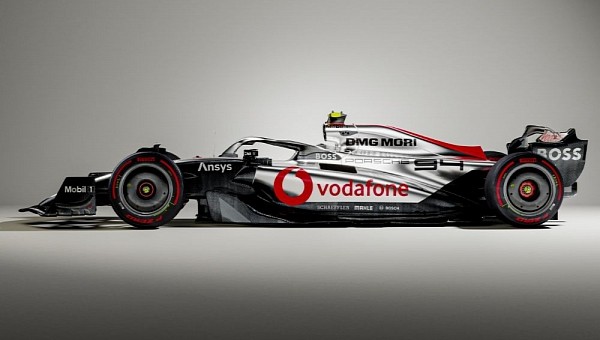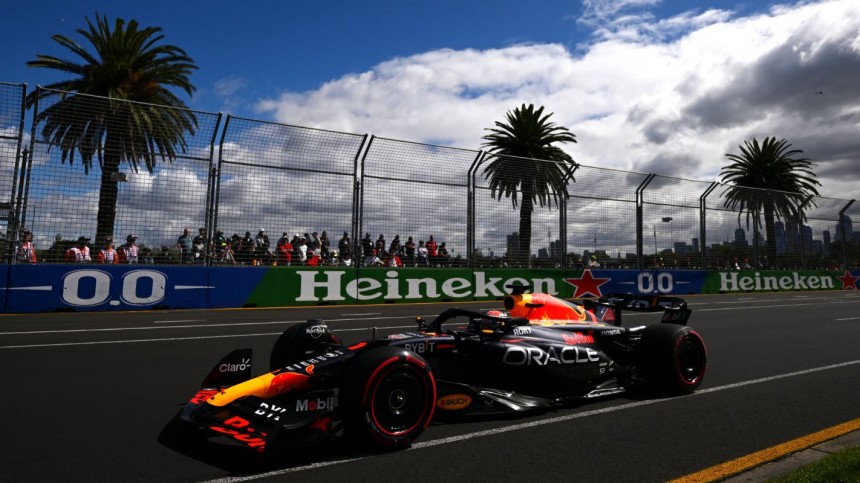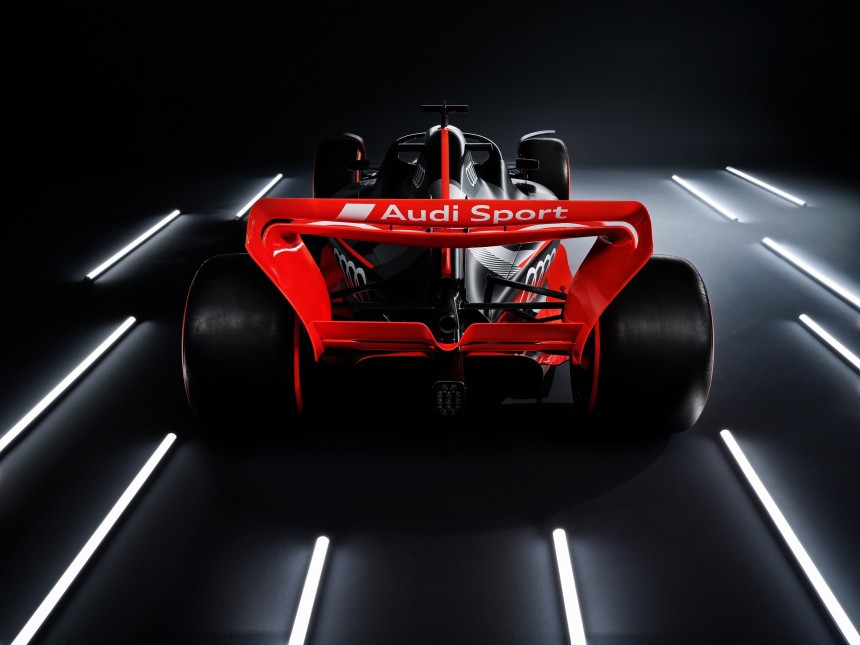Porsche will not join the prestigious world of Formula 1 in 2026. as it's believed to have ended its formal evaluation of the racing program. However, the championship is still an interest for the German manufacturer.
At one moment in time, things were looking good for Porsche in terms of entering the F1 grid in 2026, but after more than two years of meetings, arrangement, speculation, rule changes, and so on, Porsche's prospects for the future are all dead ends.
The brand from Stuttgart wanted to enter Formula 1 alongside Audi (both entities being part of the Volkswagen Group) as part of the new technical regulations. Audi decided to commit to this move by building its own racing power unit and finished the deal to buy into the Sauber/Alfa Romeo team. Meanwhile, Porsche's talks with groups like Red Bull and McLaren collapsed quite hard because the German automaker wanted to buy a significant and controlling stake.
Years ago, Porsche would probably have been successful without too much effort with this approach. After all, who wouldn't want to partner with one of the world's most outstanding manufacturers with an impressive motorsport history (not necessarily in F1). Because of this, they had this F1 itch to scratch.
Unfortunately, Porsche's prospect of joining the grid in 2026 has looked empty ever since the Red Bull deal fell through. As a result, the main focus for the automaker from Sttugart is now on the existing motorsport programs, the works Formula E team, and a huge return to the top class of cars in Le Mans as part of the 963 hypercar project.
Porsche still retains some kind of interest in F1, but it will not have an entry or affiliation with a team in the near future. The Red Bull talks were Porsche's most high-profile efforts to get on the grid, as it lined up a 50% buy-in to the company that designs and builds Red Bull Racing's cars. That would also have given Porsche a power unit supply as the Austrian team created a new powertrains division to develop its first in-house F1 engine.
When the talks with Red Bull fell apart last summer, the German automaker insisted it was still looking for an option to join the grid, but only by chasing a stake in an existing team due to the fact that it lacks the right infrastructure to take on a solo engine project. That is the main reason you did not see Porsche register their interest in the new engine rules for the 2026 Formula 1 season.
At the same time, FIA opened a process for up to two new teams to join in 2025 but didn't appeal to Porsche because of the high costs and the involvement of infrastructure. It is not known how many groups were formally approached for a deal, but it is a sure thing that McLaren had direct conversations with Porsche and Audi. In this scenario, Porsche's offer was the reputation, financial backing, and some technical resources (although they were pretty limited). In terms of personnel and facilities, the existing team (in this case, McLaren) would be providing the gross infrastructure and human resources.
The German automaker made it clear that a glorified sponsorship deal would not cut it because they wanted more control. For Red Bull, this meant giving up 50% of its main F1 operation, while for McLaren, it would have meant losing its iconic and legendary name. None of this was worth it compared to what Porsche was able to offer in return.
As a result, this marks the best opportunity F1 has had to bring back Porsche for the first time since a terrible partnership with Footwork in 1991. Although the end of a formal evaluation of F1 doesn't preclude resuming the search for a partner team in the future, the timing will unlikely be as good as 2026 appeared to be. Almost all the rule changes from 2026 were decisions made precisely to get the likes of Porsche on the grid.
The German automaker underestimated what teams needed from a partner and, at the same time, overestimated what it had to offer. We can see that because Porsche hasn't even managed to do anything with a smaller team after aiming so high with Red Bull. Ultimately, the value of owning an F1 team has shifted, and the cost of buy-in is higher than people think, even for a major manufacturer.
While Porsche showed a new example of a historically odd attitude to F1, its sister company Audi had established the right way to go about getting involved. As a result, Volkswagen has at least achieved half its aim for 2026. Audi already owns 25% of Sauber Alfa Romeo, which will gradually escalate to 75% because Sauber has partnered with the Italian manufacturer and is using Ferrari engines until 2025. So, Audi was patient enough and played the long-term game, a big contrast with Porsche.
Audi identified its strategy for the power unit, and team ownership committed to spending what was required to get an engine facility up and running and is paying hundreds of millions to buy a majority share of Sauber. This kind of approach was too much for Porsche, who instead stuck to its unrealistic terms. If we know, one thing is that Porsche never treated F1 as something too important for them, always being more of an added luxury whenever it's been convenient to do it.
For example, the German brand's first experiment into F1 back in the 1960s came because it just happened to have a car and engine that could sort of work, then did one more year with a new vehicle before deciding that the premiere motorsport class wasn't good value for money. TAG paid for the 1980s power unit project, which was the most successful example of Porsche in Formula 1, but the German automaker didn't even have the naming rights for it. Then came the disastrous and short-lived partnership with Footwork in 1991.
Ultimately, it's more of a loss for Porsche because Formula 1 is in a healthy and safe place. Many manufacturers expressed interest in entering the competition from 2026, like Ford, Honda, or General Motors with Cadillac.
The brand from Stuttgart wanted to enter Formula 1 alongside Audi (both entities being part of the Volkswagen Group) as part of the new technical regulations. Audi decided to commit to this move by building its own racing power unit and finished the deal to buy into the Sauber/Alfa Romeo team. Meanwhile, Porsche's talks with groups like Red Bull and McLaren collapsed quite hard because the German automaker wanted to buy a significant and controlling stake.
Years ago, Porsche would probably have been successful without too much effort with this approach. After all, who wouldn't want to partner with one of the world's most outstanding manufacturers with an impressive motorsport history (not necessarily in F1). Because of this, they had this F1 itch to scratch.
Unfortunately, Porsche's prospect of joining the grid in 2026 has looked empty ever since the Red Bull deal fell through. As a result, the main focus for the automaker from Sttugart is now on the existing motorsport programs, the works Formula E team, and a huge return to the top class of cars in Le Mans as part of the 963 hypercar project.
When the talks with Red Bull fell apart last summer, the German automaker insisted it was still looking for an option to join the grid, but only by chasing a stake in an existing team due to the fact that it lacks the right infrastructure to take on a solo engine project. That is the main reason you did not see Porsche register their interest in the new engine rules for the 2026 Formula 1 season.
At the same time, FIA opened a process for up to two new teams to join in 2025 but didn't appeal to Porsche because of the high costs and the involvement of infrastructure. It is not known how many groups were formally approached for a deal, but it is a sure thing that McLaren had direct conversations with Porsche and Audi. In this scenario, Porsche's offer was the reputation, financial backing, and some technical resources (although they were pretty limited). In terms of personnel and facilities, the existing team (in this case, McLaren) would be providing the gross infrastructure and human resources.
The German automaker made it clear that a glorified sponsorship deal would not cut it because they wanted more control. For Red Bull, this meant giving up 50% of its main F1 operation, while for McLaren, it would have meant losing its iconic and legendary name. None of this was worth it compared to what Porsche was able to offer in return.
The German automaker underestimated what teams needed from a partner and, at the same time, overestimated what it had to offer. We can see that because Porsche hasn't even managed to do anything with a smaller team after aiming so high with Red Bull. Ultimately, the value of owning an F1 team has shifted, and the cost of buy-in is higher than people think, even for a major manufacturer.
While Porsche showed a new example of a historically odd attitude to F1, its sister company Audi had established the right way to go about getting involved. As a result, Volkswagen has at least achieved half its aim for 2026. Audi already owns 25% of Sauber Alfa Romeo, which will gradually escalate to 75% because Sauber has partnered with the Italian manufacturer and is using Ferrari engines until 2025. So, Audi was patient enough and played the long-term game, a big contrast with Porsche.
Audi identified its strategy for the power unit, and team ownership committed to spending what was required to get an engine facility up and running and is paying hundreds of millions to buy a majority share of Sauber. This kind of approach was too much for Porsche, who instead stuck to its unrealistic terms. If we know, one thing is that Porsche never treated F1 as something too important for them, always being more of an added luxury whenever it's been convenient to do it.
Ultimately, it's more of a loss for Porsche because Formula 1 is in a healthy and safe place. Many manufacturers expressed interest in entering the competition from 2026, like Ford, Honda, or General Motors with Cadillac.




































